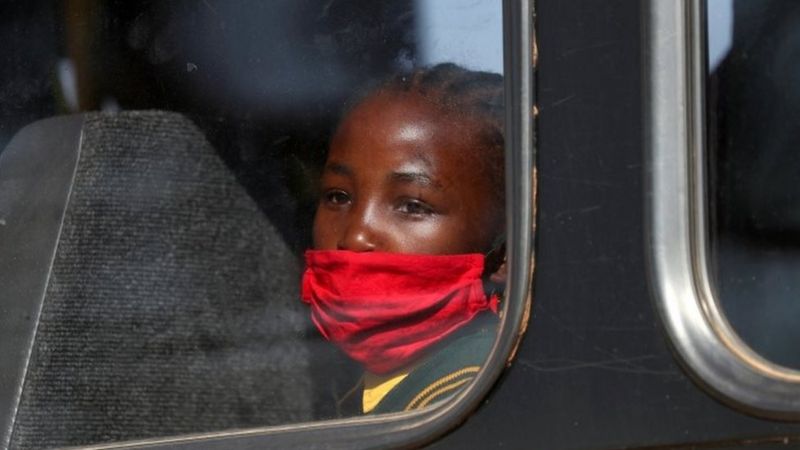Thousands celebrate a chief who will only rule for eight years

The week-long Gada ceremony, which ended on Sunday, sees the official transfer of power from one customary ruler to his successor – something that happens every eight years.
The tradition of regularly appointing a new Abbaa Gadaa has been practised by the Borana community for centuries – and sees them gather at the rural site of Arda Jila Badhasa, near the Ethiopian town of Arero.
It is a time to celebrate their special form of democracy as well as their cultural heritage, with each age-group taking the opportunity to wear their different traditional outfits.
These are paraded the day before the official handover during a procession when married women march with wooden batons, called “siinqee”.
The batons have symbolic values of protection for women, who use them during conflict.
If a siinqee stick is placed on the ground by a married woman between two quarrelling parties, it means the conflict must stop immediately out of respect.
During the procession, younger women walk at the front, distinguished from the married women by the different colour of their clothing.
In this pastoralist society, women are excluded from holding the top position of Abbaa Gadaa, sitting on the council of elders or being initiated into the system as a child.
But their important role can be seen during the festival as they build all the accommodation for those staying for the week – and prepare all the food.
And the unique Gada system of governance, which was added to the UN’s cultural heritage list in 2016, allows for them to attend regular community meetings and to voice their opinions to the Abbaa Gadaa.
Gada membership is only open to boys whose fathers are already members – young initiates have their heads shaven at the crown to make their rank clear.
The smaller the circle, the older he is.
As the global cultural body Unesco reports, oral historians teach young initiates about “history, laws, rituals, time reckoning, cosmology, myths, rules of conduct, and the function of the Gada system”.
Training for boys begins as young as eight years old.
Later, they will be assessed for their potential as future leaders.
As they grow up, tests include walking long distances barefoot, slaughtering cattle efficiently and showing kindness to fellow initiates.
Headpieces made from cowrie shells are traditionally worn by young trainees. The only other people allowed to wear them are elderly women.
Both groups are revered by Borana community members.
Men aged between 28 and 32 are identified by the ostrich feathers they wear, which are known in the Afaan Oromo language as “baalli”.
Their attendance at the Gada ceremony is an opportunity to learn, prepare and bond as it is already known who from this age-group will be named Abbaa Gadaa in 2033.
The main event at the recent Gada ceremony was the handover of power, from the outgoing 48-year-old Abbaa Gadaa to his younger successor.
Well-wishers crossed the border from Kenya and others travelled from as far as Ethiopia’s capital, Addis Ababa, to witness the spectacle. The governor of Kenya’s Marsabit county was among the honoured guests.
Thirty-seven-year-old Guyo Boru Guyo, seen here in white, holding a spear, was chosen to lead because he impressed the council of elders during his teenage years.
He becomes the 72nd Abbaa Gadaa and will now oversee the Borana people who live in both southern Ethiopia and north-western Kenya.
As their top diplomat, he will also be responsible for solving the feuds that may emerge in the pastoralist community.
These often involve cattle-raiding and disputes over access to water in this drought-prone region.
During his eight years at the helm, his successor will finish his training to take on the job in continuation of this generations-old tradition.
Source: bbc.com





